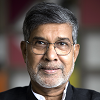Kailash Satyarthi, a Nobel Peace Prize laureate, is Honorary President of the Global March Against Child Labour and the founder of Bachpan Bachao Andolan (Save Childhood Movement).

By Kailash Satyarthi
On September 24-25, world leaders will attend a United Nations summit in New York to review progress toward the UN’s 17 Sustainable Development Goals. This will be the first UN summit on the SDGs since the adoption of the 2030 Agenda in September 2015. Since then, we have collectively made progress toward a more peaceful, safer, healthier, and more prosperous world. Sadly, however, we are currently on track to miss most of the SDGs and targets related to children – without which the fulfillment of the 2030 Agenda can remain only a distant dream.
Today, some 50 million children worldwide are without safe shelter because of the migrant and refugee crisis. Around 152 million children are laborers. Some 262 million children and youth do not attend school. Almost 428 million children under the age of ten live in poverty. These are not mere numbers. These are our children, and they are human beings.
Simply continuing with current efforts will not improve these numbers significantly. To get the 2030 Agenda back on track, world leaders must be honest, bold, responsible, and compassionate, and their governments and organizations must invest adequately in our children.
After often-lackluster global efforts to meet many of the UN’s earlier Millennium Development Goals, particularly those concerning children, poverty, and education, a lot of hopes are resting on the SDGs. Many campaigners, including me, worked hard to include SDG 8.7 (which aims to end child labor in all its forms by 2025) and other child-related goals in the 2030 Agenda.
But if current trends hold, there will still be 121 million child laborers in 2025. In 2030, 225 million children and youth will not be going to school, and 6% of the world’s population will still be living in extreme poverty. That would mean the world fails to achieve SDG 8.7, SDG 1 (no poverty), and SDG 4 (quality education), leaving millions of children vulnerable to unimaginable violence and exploitation. And each lost childhood will represent a missed opportunity for humankind.
Although many governments have reported progress toward meeting the SDGs, some are merely cherry-picking individual goals and leaving vital issues such as child labor and education off their priority lists. Because voluntary national reviews clearly are not serving their purpose, we now need mandatory reviews of governments’ progress toward all the SDGs, with strict targets, deadlines, and accountability for all stakeholders. The UN should demand (and then support) clear and concrete plans from governments, with evidence that they are implementing their commitments on all child-related goals.
Above all, policymakers must take steps to break the vicious circle of child labor, poverty, and illiteracy – what I called, many years ago, the “Triangular Paradigm.” Every child laborer works in place of an adult, and is compelled to remain illiterate, unskilled, and poor. This leads to intergenerational poverty, which needs to be tackled systematically.
The UN, European Union, international agencies, and national governments should therefore adopt four main priorities. First, they must invest more in social-protection schemes for adults, because these also clearly benefit children and make them less vulnerable. Brazil’s Bolsa Família program, or the Midday Meal Scheme and Mahatma Gandhi National Rural Employment Guarantee in India, are good examples of this.
Second, policymakers should strive to provide decent working conditions for adults, thereby helping children enjoy their childhood to the fullest. They should focus on creating more jobs, reducing inequalities, implementing national minimum wages, and ensuring that women receive equal pay for equal work. Because more than 60% of global employment is in the informal economy, this will be a herculean task. Governments and businesses must take steps to formalize the economy so that public bodies and law-enforcement agencies can implement and monitor labor standards and working conditions.
Third, governments must do more to give adolescents the skills they need, thereby ensuring their smooth transition into the labor force once they reach employment age. In addition, national and international youth groups should be inclusively represented in decision-making at all levels of the SDG process.
Finally, world leaders should remember that a good education is the perfect antidote to child labor and poverty. Today, many developing countries still lack the basic infrastructure and facilities to provide effective learning environments in which children can do well. In Sub-Saharan Africa, for example, less than half of primary and lower secondary schools have access to electricity, the Internet, computers, and drinking water.
In order to achieve the goal of inclusive and equitable quality education for all (SDG4), annual global spending on education must increase from $1.2 trillion now to $3 trillion by 2030. This will require additional multilateral and private-sector financing, especially for governments in poorer countries.
My biggest fear is that without the necessary funds, collective political will, and sense of urgency, the SDGs will remain a beautifully drafted charter of unfulfilled wishes. But I refuse to accept that the world lacks the resources or the capacity to meet the goals – especially in a year when we are celebrating the centenary of the International Labour Organization and the 30th anniversary of the UN Convention on the Rights of the Child.
Recently, I attended the Nobel Peace Summit in Mexico along with 29 other individual and organizational recipients of the Peace Prize. My fellow laureates agreed that global sustainability and peace are possible only if we ensure the freedom, safety, and education of all our children.
I therefore earnestly call upon the UN, heads of governments, and all concerned stakeholders in New York this week to reinvigorate their commitment to the 2030 Agenda, and particularly those goals concerning children. A world that does not protect its youngest people will be anything but sustainable.
Copyright: Project Syndicate, 2019.
www.project-syndicate.org



